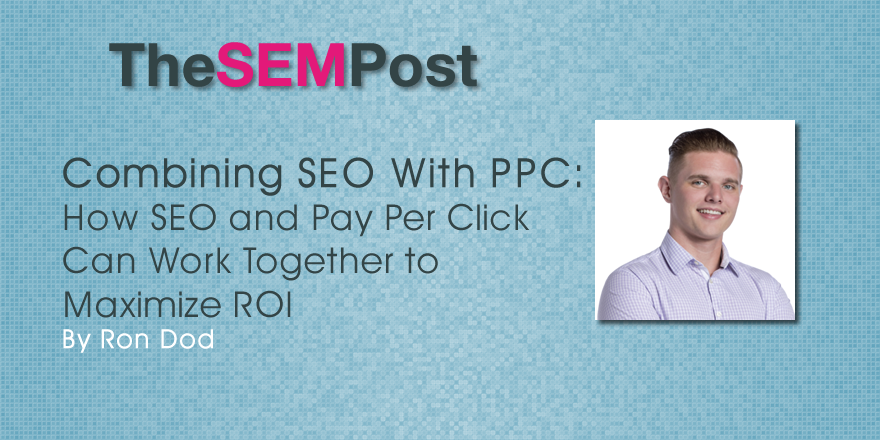 SEO and PPC have always been very conflicting ideologies. On one hand, you have a precise profession where every cent counts (PPC), and, on the flip side (SEO), more is better with no regard to logic. Who cares about conversion rates when you get 10x the traffic as a PPC campaign? Am I right, my SEO colleagues? But, at last, there is a way we can work together to achieve higher ROI for clients and ourselves. That is by working together to integrate our campaigns and achieve a higher understanding of each other’s strengths and weaknesses.
SEO and PPC have always been very conflicting ideologies. On one hand, you have a precise profession where every cent counts (PPC), and, on the flip side (SEO), more is better with no regard to logic. Who cares about conversion rates when you get 10x the traffic as a PPC campaign? Am I right, my SEO colleagues? But, at last, there is a way we can work together to achieve higher ROI for clients and ourselves. That is by working together to integrate our campaigns and achieve a higher understanding of each other’s strengths and weaknesses.
Using PPC Data for SEO Targeting
It is true that SEO people lose sight of the big picture sometimes. Why try to rank a page for a keyword that converts at 5% and has 1,000 monthly searches, when I can rank it for a keyword that has 2.5% conversion rate but has 10,000 monthly searches? But, now, we can ditch our AdWords keyword tool, SEMRush, or whichever SEO tool you use to do keyword research.
We can have our PPC team pull—page by page—the keywords that convert highest for each category page and optimize pages based on targeted traffic. This is great when forming keyword matrixes. Plus, there is nothing that clients like more than targeting high grossing/converting keyword phrases.
Using Retargeting for Hard-Earned SEO Traffic
Earning organic search traffic is a tough business. We fight over our targeted keyword rankings and, once we achieve these rankings, we want that traffic to pay off. But, bad news: Only 2% of first-time visitors convert. That is why retargeting is an SEO person’s best friend. We can now show the value of our organic search traffic and help get some of this hard-fought traffic back to the site to convert when they are ready.
Creating SEO Landing Pages
Generally, a good SEO team can become pretty crafty with a good search engine optimization strategy. Generally, we work in e-commerce and use category pages as landing pages to rank for phrases, but, when we work in lead generation, we create landing pages interlinked together, which are ranking for specific phrases we choose to target.
A retargeting campaign that targets all site-wide visitors is not as effective as a targeted retargeting campaign. Therefore, because there are specific landing pages created for SEO value, you can retarget these individual pages with different messages, which gives the consumer a more targeted message! They are more likely to convert and, over time, this will give you a higher ROI.
Side note – I visited Capital One’s 360 page and got these ads …
In addition to retargeting, you can also use your ad groups to target these specific pages. SEO people, at the end of the day, want to convert this traffic. Being that the SEO team is creating high quality content that should convert, we can focus our PPC efforts on these pages as well. This gives us new pages to test and send targeted clicks to.
Improve Quality Score
It is mind-blowing how some of our own clients perform PPC but have very poor SEO. How simple would it be to alter your meta information to include the targeted keywords that perform on PPC? How easy would it be for some simple on-page optimization to give your targeted landing pages a higher quality score? With the right SEO team, you can improve your quality score and improve ROI on almost any PPC campaign.
Anything to add? Sound off in the comments.
Latest posts by Ron Dod (see all)
- Common SEO Problems With E-Commerce Site Launches - April 7, 2016
- How SEO and PPC Can Work Together to Maximize ROI - March 8, 2016
- Using SEO Research to Discover Why Organic Rankings Dropped - February 18, 2016
- New Ways to Use the SEO Tools in Your Toolbox - February 3, 2016


[…] How SEO and PPC Can Work Together to Maximize ROI, thesempost.com […]